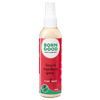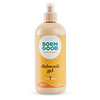The smell of rain hitting the earth, the warmth of a cup of chai cosy in your palms and the spice of Mumma’s famous pakodas flirting with your taste buds. Hmmm, nothing beats the experience of rain. It’s almost like the universe is shedding the doom and gloom, to begin something afresh. Much as we would like to enjoy the inherent romance of the rain and remember the bygone simpler days of making paper boats, the monsoon season brings more bugs than boats. But, fret not, we’ve made a list of things you can do to prepare for the season and keep your worries at bay.
Here are 6 tips on getting your home monsoon-ready:
1) De-"bug" your home
The humidity brought by the rains is an invitation to a lot of creepy crawlies— cockroaches, leeches, flies etc. While the eek-factor is definitely high with these bugs, they also carry associated diseases with them. Some even tend to bite! So, it’s very important to disinfect high traffic areas such as your home’s entrance, the living room and the kitchen.
We recommend ditching the chemical floor cleaners, and opting for eco-friendly home cleaning products such as our plant-based concentrate floor cleaner. This leaves behind no chemical residue, and hence doesn’t attract bugs. Since it’s a concentrated formula, it will also last you much longer, so that your pocket doesn’t feel pinched by the extra cleaning post rainfall.

2) Leave behind no proxy-ponds
Don’t allow water to collect in buckets in your verandah or balcony. They become breeding grounds for mosquitoes and other insects. As a precaution, get your drains also cleaned so that the rain debris doesn’t clog them and turn into stagnant stinky ponds for rodents to frolic in.
3) Keep the mould away
Monsoon = MOULD!
If you don’t like this grey-green accessory, then make sure you wipe your taps and showers dry, after cleaning them with our plant-based cleaners. These spots are the best hosts to mould and germs. Furthermore, you should roll up your expensive rugs and carpets. Not only do muddy shoes make them a nightmare to clean, the moisture left behind even after cleaning encourages growth of mould and moss.
It’s also be prudent to switch to bamboo furniture during this season. Wooden furniture absorbs moisture and encourages termite infestation during the monsoon. However, if you’re unable to stow away the furniture, you can opt to treat it with anti-termite solutions and keep cotton pouches filled with salt under the upholstery to soak up the dampness.
4) Bye-bye bacteria
Although you can’t count on the sun to dry your clothes and linen, you can’t afford to skimp on the washing during the monsoons. Damp clothes fester unwanted fungi and bacteria. So, keep your washing machines busy and invest in indoor drying racks.
We also recommend using a smidge of fabric conditioner along with your laundry detergent. It will protect your fabric from the wear and tear of the extra washing they experience during the monsoon.

Pro tip: Store your clean clothes with cedar wood balls to keep them free from mildew and moths. Also line your wooden shoe cabinets with newspaper to absorb moisture from your rain-trodden sneakers.
5) Play Bob-The-Builder

Don’t worry, you don’t have to perform miracles like trusty Bob. But, the pre-monsoon weeks require some vigilance and proactivity on your part. Look for cracks and crevices along your walls and ceilings. You can choose to call a professional to help fill them in, or make some putty—a doughy mix of four tablespoons of white flour, one-third teaspoon of salt and paint or primer— and seal them yourself. This will prevent bloating and/ moss-ification of your walls. You can also use industrial tape to seal them. For those loose shingles on your roof, use waterproofing agents like Dr. Fixit to prevent any tip tip barsa paani..
Next, make sure your home is a shock-free zone. You can prevent the electric ones at least! Use electrical tape to cover any hanging wires, switch boards or fixtures. Don’t forget to switch off the main switch.
6) Stock up on ..
Budget for these added but absolutely necessary expenses, such as:
- Home cleaning products. As we’ve elaborated above, you will need to disinfect your homes regularly. We suggest you cart some eco-friendly products such as laundry detergent and floor cleaners. You can cart them from our store.
- Water absorbent mats. Place them strategically at the entrances of your home, outside balconies and bathrooms. They will prevent some muddy slip and slides.
- Floor wiper. Self-explanatory, no? They’re life savers when it comes to draining pooled water.
- Mosquito nets. Place them around your bed for a Victorian feel or over windows if you want to leave them open, so that you can enjoy the cool breeze and smell of rain without the threat of malaria hanging over your head.
- Dehumidifier. This isn’t an absolute must-have, but it minimizes the moisture in the air, discouraging the growth of mould and fungus.
- Candles. It definitely adds to the romance of the rains, but aesthetics aside, if your emergency lights ever fail you, you can always light some candles to keep darkness away. Speaking of emergency lights, make sure you get yourself one? And, don’t forget to get your inverter checked.
Lastly, invest in a sturdy umbrella. Being cooped up at home is very tempting, especially after how cosy we’ve made them during the pandemic, but don’t miss out on the joys of baarish! You never know, maybe you still like floating those tiny paper boats.









1 comment
Thanks a lot for very good and useful information. Do you have any stain remover also?